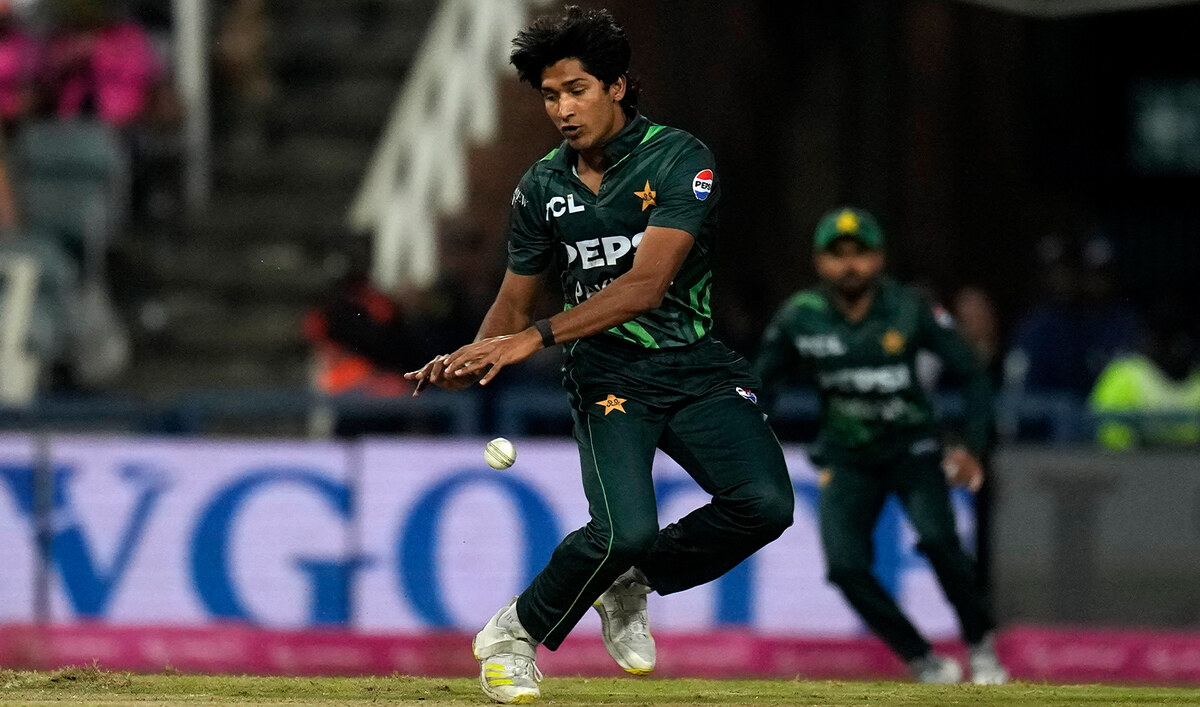ISLAMABAD: Protest marches, political upheavals and violence marred 2022 for Pakistan—a country already reeling from a host of economic problems—as it sought to maintain some semblance of political stability but was rocked by one controversy after another.
The dissolution and subsequent restoration of the National Assembly, by-elections on vacant seats, frequent changes in government in Punjab and a gun attack on former prime minister Imran Khan were just some of the events that dominated the political landscape this year.
Political instability has yet to stem, with Khan demanding Prime Minister Shehbaz Sharif announce early elections in the country. The government has refused to budge, stating that elections would be held late next year as per schedule.
Here is a list of events that drastically changed the political landscape in Pakistan this year and continue to impact the country's fragile democracy and rule of law.
No trust motion against PM Khan
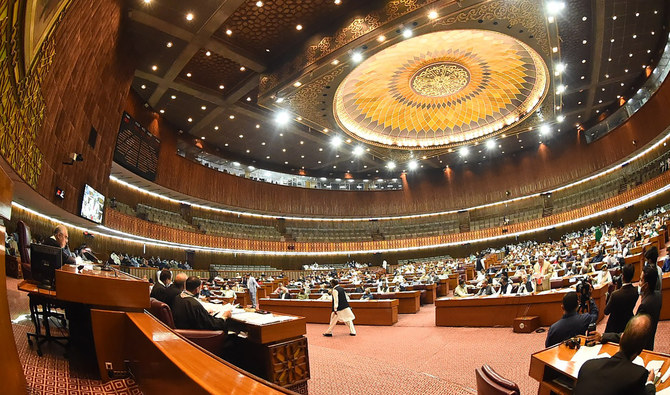
This photograph released by Pakistan National Assembly on January 7, 2022, shows a general view of a parliament session in Islamabad. (Photo courtesy: @NAofPakistan/Twitter)
A delegation of senior opposition politicians submitted a motion on March 8, seeking a vote of no-confidence from then prime minister Imran Khan. In the months to come, this would have massive political implications for the country.
Deputy Speaker dismisses the motion

An undated file photo of the former deputy speaker of Pakistan's national assembly. (Photo courtesy: social media)
Deputy Speaker of the National Assembly, Qasim Suri, dismissed the opposition’s motion on April 3 through a ruling. He termed it against Article 5 of the constitution, which states loyalty to the state was the basic duty of every citizen.
Khan’s government accused the opposition of moving the no-confidence motion as part of a foreign conspiracy orchestrated by Washington. The allegations were vehemently denied by the US and Khan's political opponents.
PM Khan advises President to dissolve National Assembly
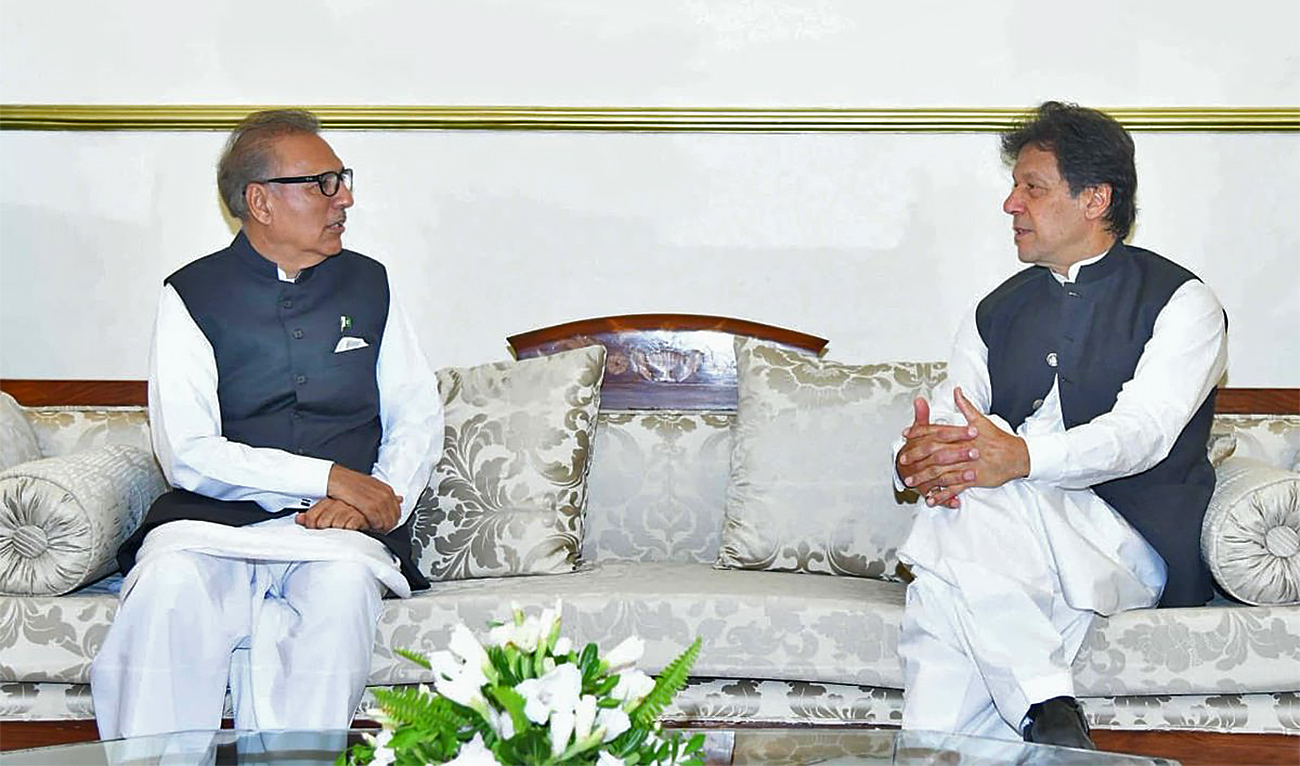
The file photo shows Pakistan's President Dr. Arif Alvi (left) and former Prime Minister Imran Khan in Islamabad, Pakistan, on July 29, 2019. (@GovtofPakistan/Twitter)
A few minutes after the deputy speaker threw out the motion, then prime minister Khan advised President Dr. Arif Alvi to dissolve the National Assembly under article 58 of the constitution and called on the nation to prepare for fresh elections.
Supreme Court sets asides deputy speaker’s ruling
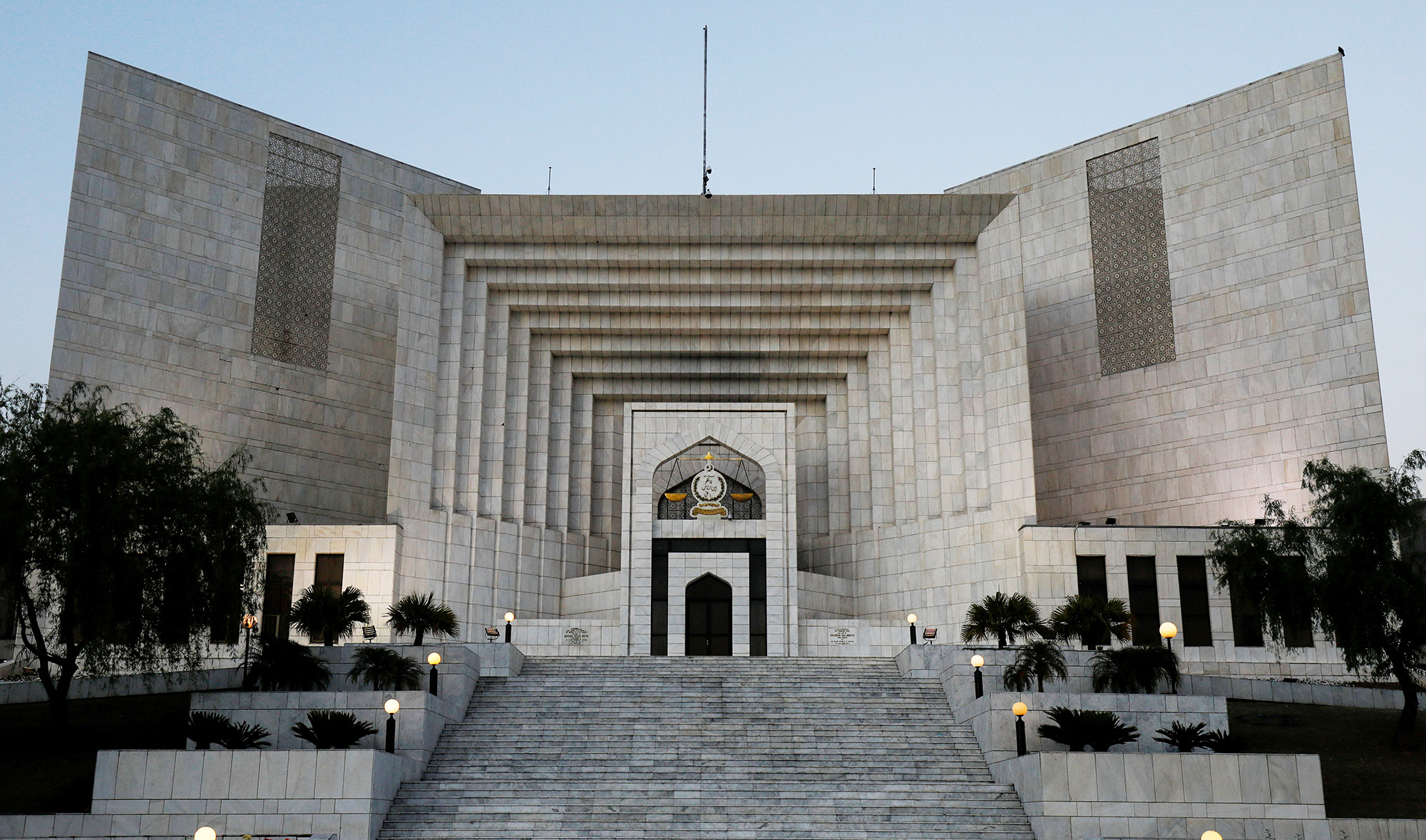
A general view of the Supreme Court of Pakistan building at the evening hours, in Islamabad, Pakistan on April 7, 2022. (REUTERS/File)
Not to be outdone, the opposition parties approached the Supreme Court against the deputy speaker's ruling. Pakistan's top court took, in a crucial decision, set aside the speaker’s ruling on April 7, saying that the prime minister's advice to the president was against the constitution.
Khan ousted from power
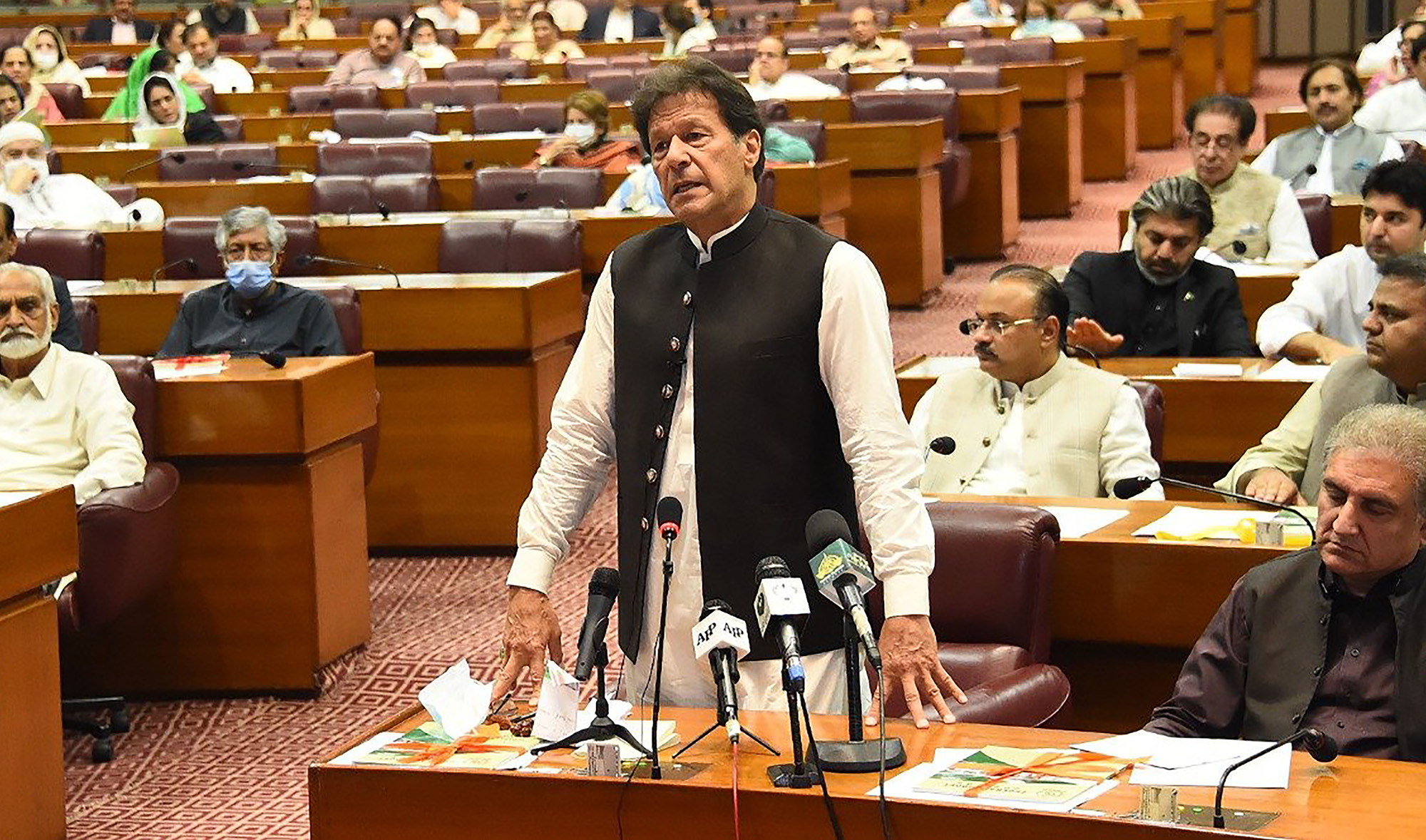
Pakistan's former prime minister Imran Khan addressing to the National Assembly in Islamabad on June 30, 2021. (Photo courtesy: @NAofPakistan/Twitter)
On April 9, Khan became Pakistan's first prime minister to be dismissed via a parliamentary vote. He had been the country's chief executive for three-and-a-half years. Khan was elected to office for the first time after the 2018 general elections in which his Pakistan Tehreek-e-Insaf (PTI) party won the majority.
Shehbaz Sharif elected new PM
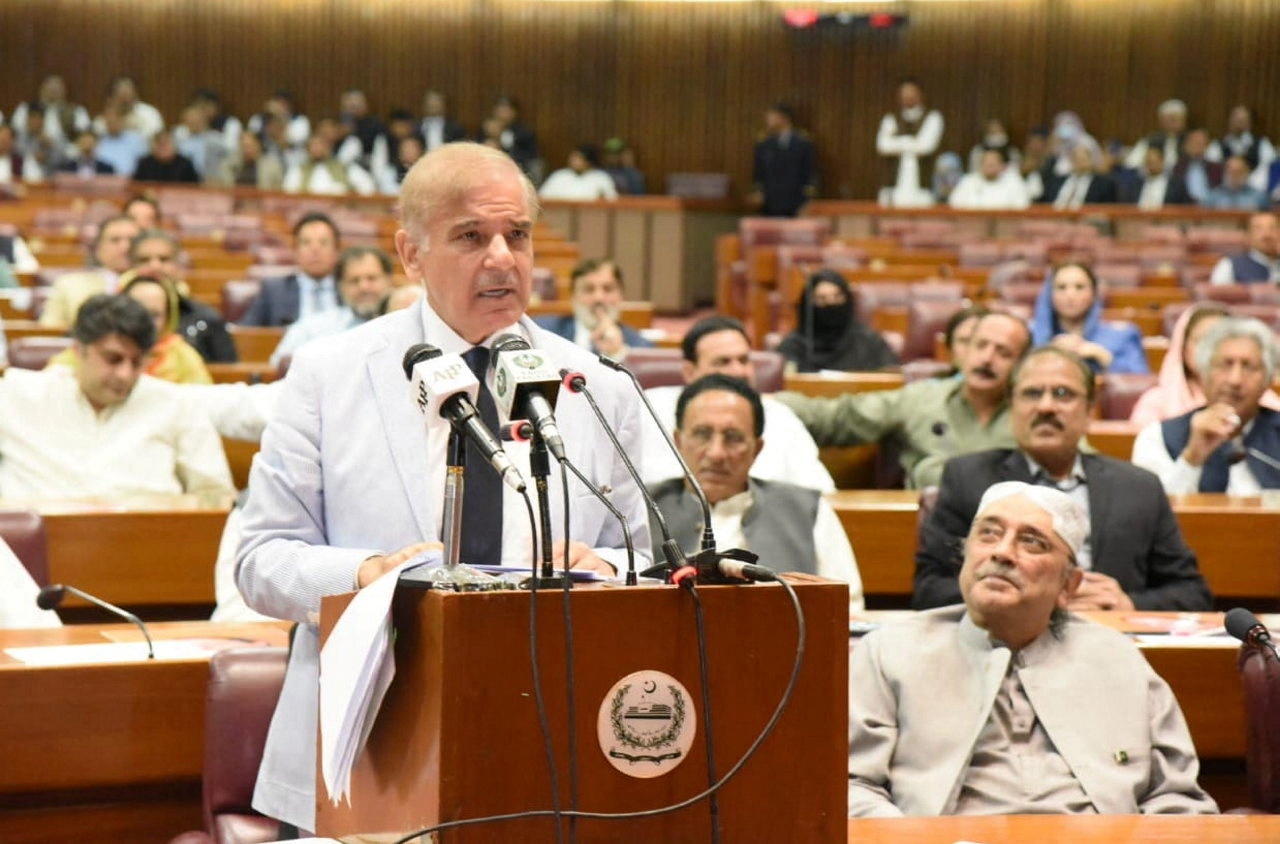
Shahbaz Sharif speaks after winning a parliamentary vote to elect a new prime minister, at the national assembly, in Islamabad, April 11, 2022. (REUTERS/File)
On April 10, Pakistan Muslim League-Nawaz (PML-N) President Shehbaz Sharif was elected the new prime minister of the country. Sharif was elected by the National Assembly with a thin majority of just two votes in the 342-member house. He secured 174 votes.
Khan’s PTI boycotted the election process and later announced to tender en masse resignations from the National Assembly.
Meanwhile, the opposition also submitted a no-confidence motion against the then chief minister of Punjab, Usman Buzdar, also a member of Khan's PTI party. The motion was submitted on March 28 to oust him from office.
The motion kickstarted a new round of political wheeling and dealing to topple the PTI government in Pakistan's most populous province as well.
CM Punjab Usman Buzdar resigns
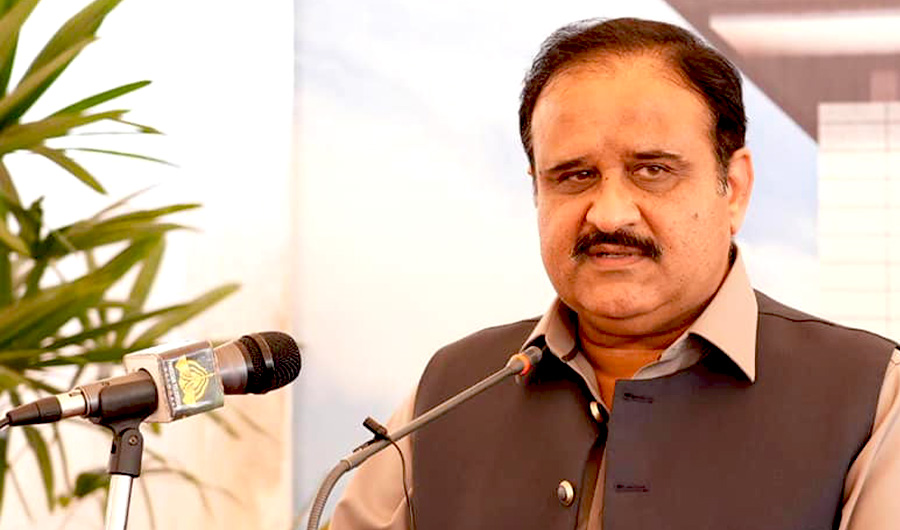
This undated photo shows Pakistan's Punjab Chief Minister Usman Buzdar in Punjab Assembly. (Photo courtesy: local media)
Then governor of Punjab, Chaudhry Sarwar, accepted Buzdar's resignation as chief minister. It paved the way for a fresh election in the provincial assembly for his coveted position.
Hamza Shehbaz elected new CM Punjab

Hamza Shehbaz, son of Pakistan Prime Minister Shahbaz Sharif, arrives before the Chief Minister of Punjab vote at the provincial assembly in Lahore on April 16, 2022. (AFP/File)
PML-N’s Hamza Shehbaz, son of PM Sharif, was elected the new chief minister of Punjab on April 16 following a chaotic session at the Punjab Assembly. Deputy Speaker Sardar Dost Muhammad Mazari was attacked while PML-Q leader Chaudhry Parvez Elahi also got injured in as scuffles broke out between PTI and PML-N legislators.
When the dust was settled, Hamza secured 197 votes to beat Elahi, who was backed by Khan’s PTI party.
Hamza Shehbaz’s election challenged in court
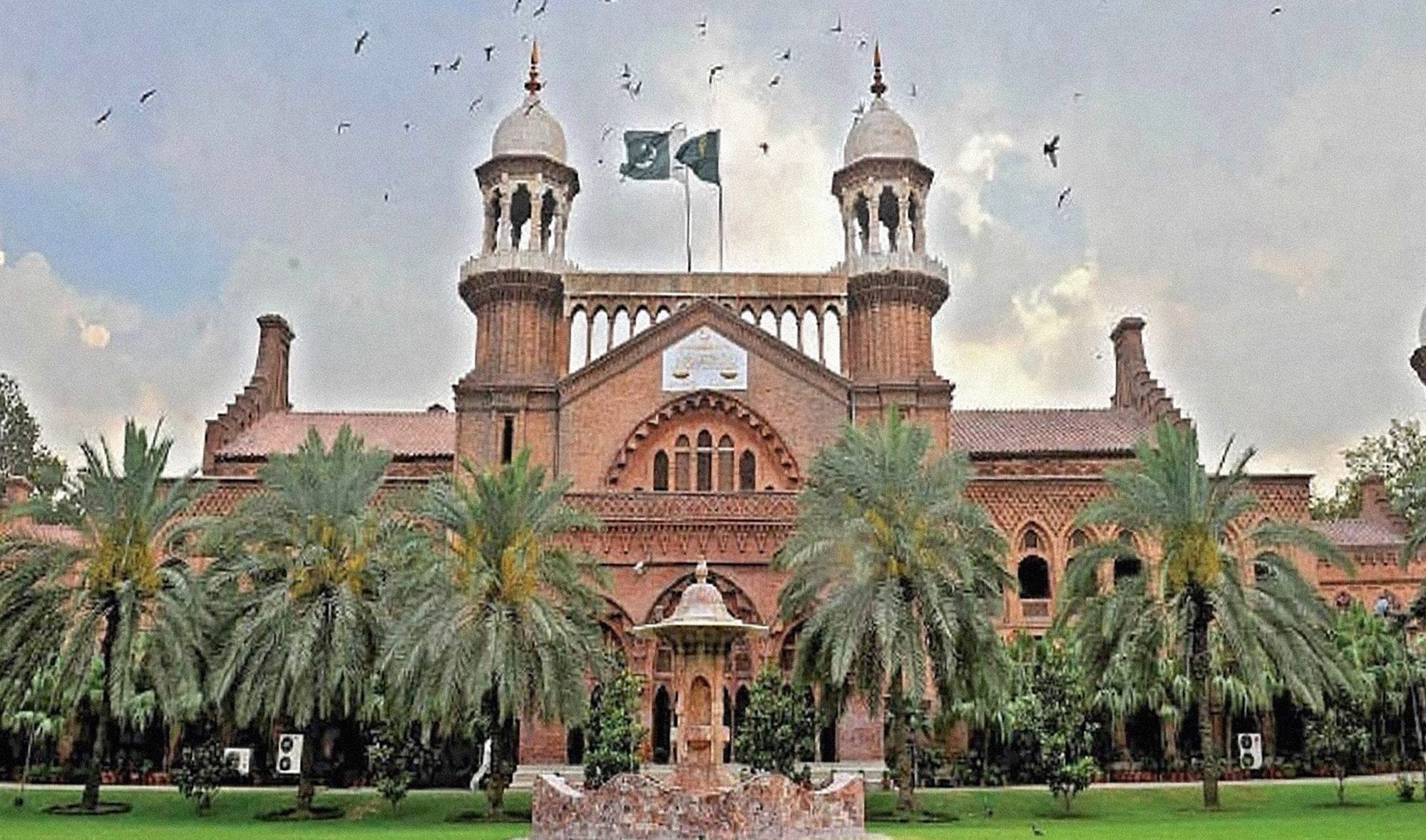
In this undated file photo, a flock of birds flies over the Lahore High Court. (Photo courtesy: social media)
The PTI challenged Hamza’s election in the Lahore High Court (LHC), saying that its 25 dissidents had voted for Hamza against the party's directives and their votes should not be counted. On June 30, the LHC ordered the recounting of votes of Punjab chief minister’s election, excluding the votes of 25 PTI dissidents.
PTI wins back Punjab from PML-N
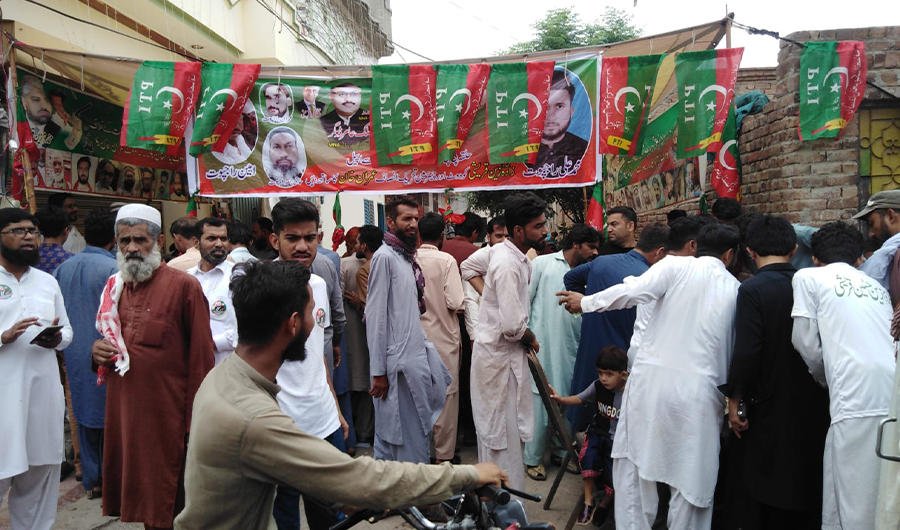
A view of a polling station PP-217 in Multan, Pakistan on July 17, 2022. (Photo courtesy: Social media)
The election commission conducted by-elections on 20 Punjab Assembly seats after PTI dissidents were disqualified for voting against their party's directives. The PTI swept by the by-elections, winning 15 out of 20 seats when the results were announced on July 17. The PTI made a strong comeback and was once again in a position to elect its own chief minister in Punjab.
Khan ally Parvez Elahi elected new CM Punjab
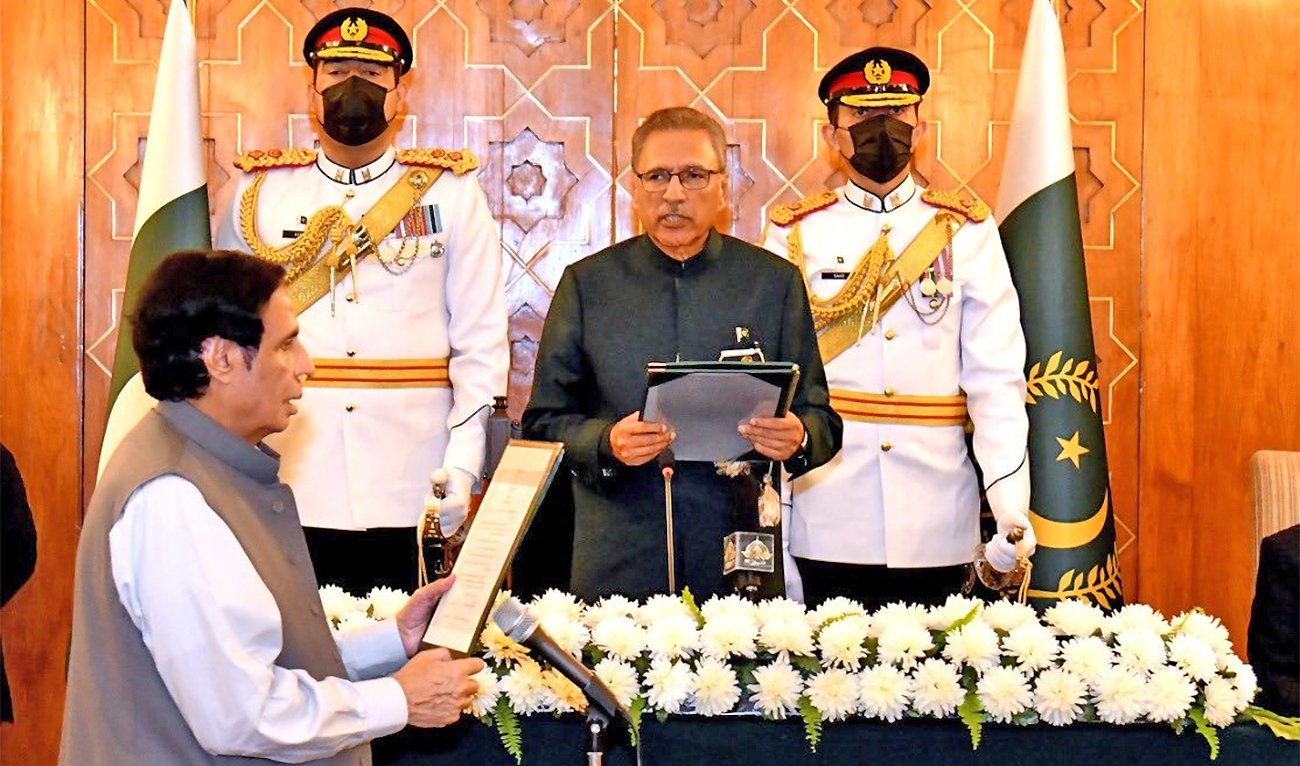
President of Pakistan, Dr. Arif Alvi (center) administers oath to Chaudhry Parvez Elahi (left) as Chief Minister Punjab in Islamabad, Pakistan, on July 27, 2022. (@PresOfPakistan/Twitter)
On July 27, Pervaiz Elahi was declared the new chief minister of Punjab after the the Supreme Court struck down Punjab Assembly deputy speaker’s ruling. The deputy speaker had refused to count 10 votes in Elahi's favor, saying that they were against the directives issued by the party's head, Chaudhry Shujaat Hussain.
President Dr. Arif Alvi administered the oath to Elahi at the President House after the Governor Punjab refused to administer it.
Meanwhile, Khan held numerous rallies in various parts of the country, demanding PM Sharif announce a date for general elections in Pakistan.
Khan commences anti-government long march in May
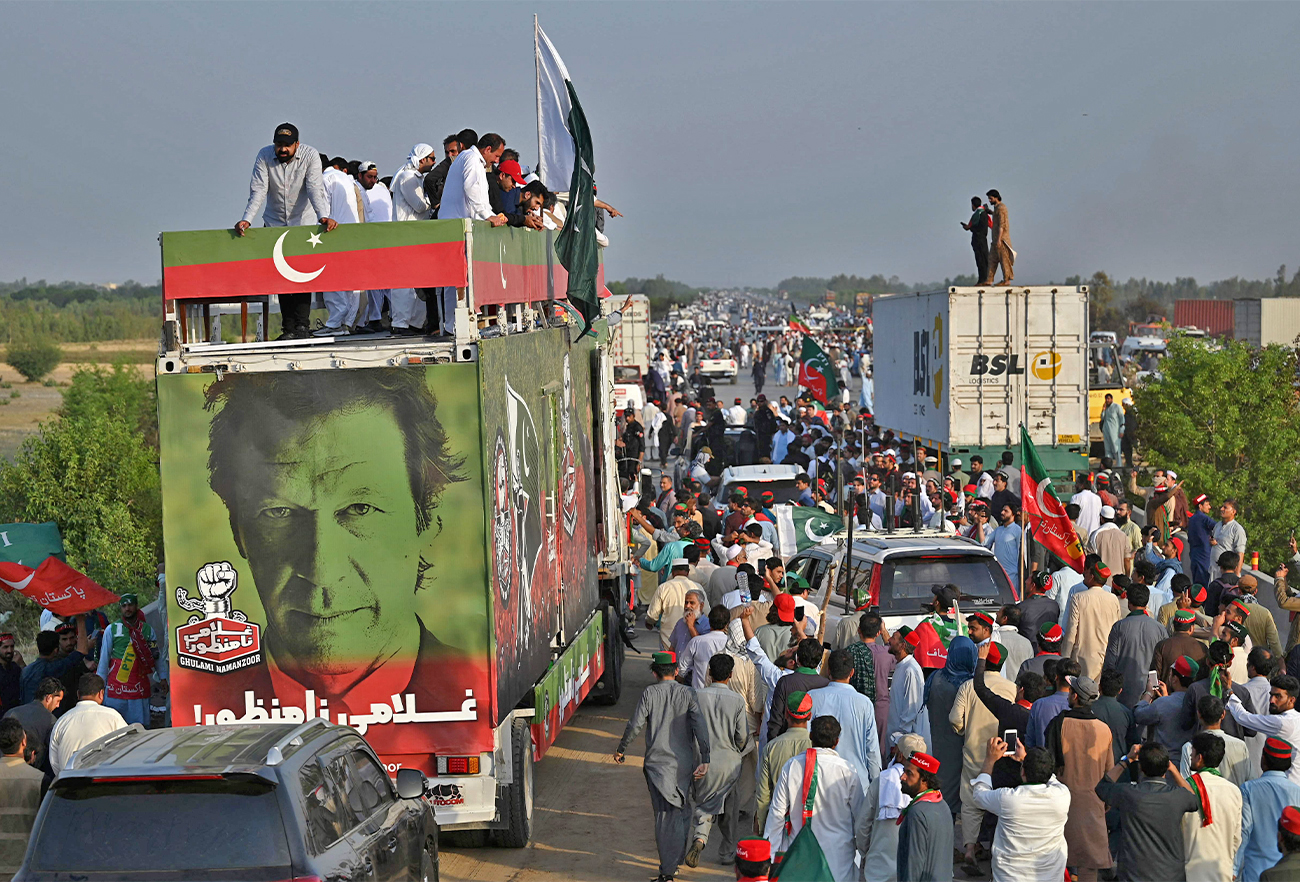
Supporters of Pakistan's former prime minister Imran Khan, take part in a protest rally in Attock, Pakistan, on May 25, 2022. (AFP/File)
Khan led a mass protest rally from Khyber Pakhtunkhwa province, while caravans from other parts of the country were also scheduled to converge in Islamabad on May 25. Khan intended to force the government to announce a date for early elections.
However, the Sharif-led government succeeded in defusing the protest with a strict clampdown on the protesters in the federal capital.
Khan makes history by winning six National Assembly seats out of seven
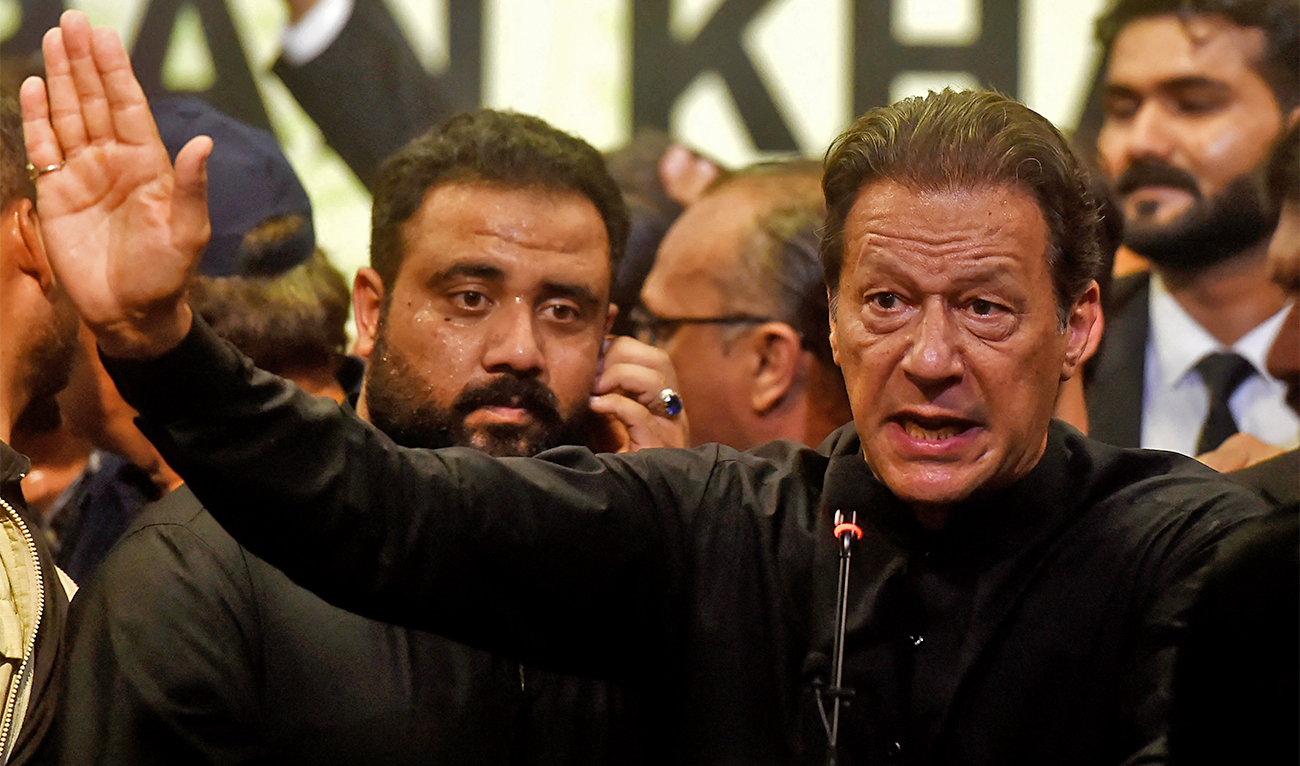
Pakistan's former Prime Minister Imran Khan (C) speaks at an event of Karachi Bar Association in Karachi on October 14, 2022. (AFP/File)
The election commission subsequently held by-elections on nine National Assembly seats where the speaker accepted PTI legislators' resignations.
Khan initially won six out of seven seats contested in all three provinces including Punjab, Sindh and Khyber Pakhtunkhwa. He later won another seat in KP on which polls were delayed for a while due to the security situation.
The win made Khan Pakistan's first politician to secure victory over eight National Assembly seats against strong candidates of the Sharif-led coalition government.
PTI’s long march begins from Lahore
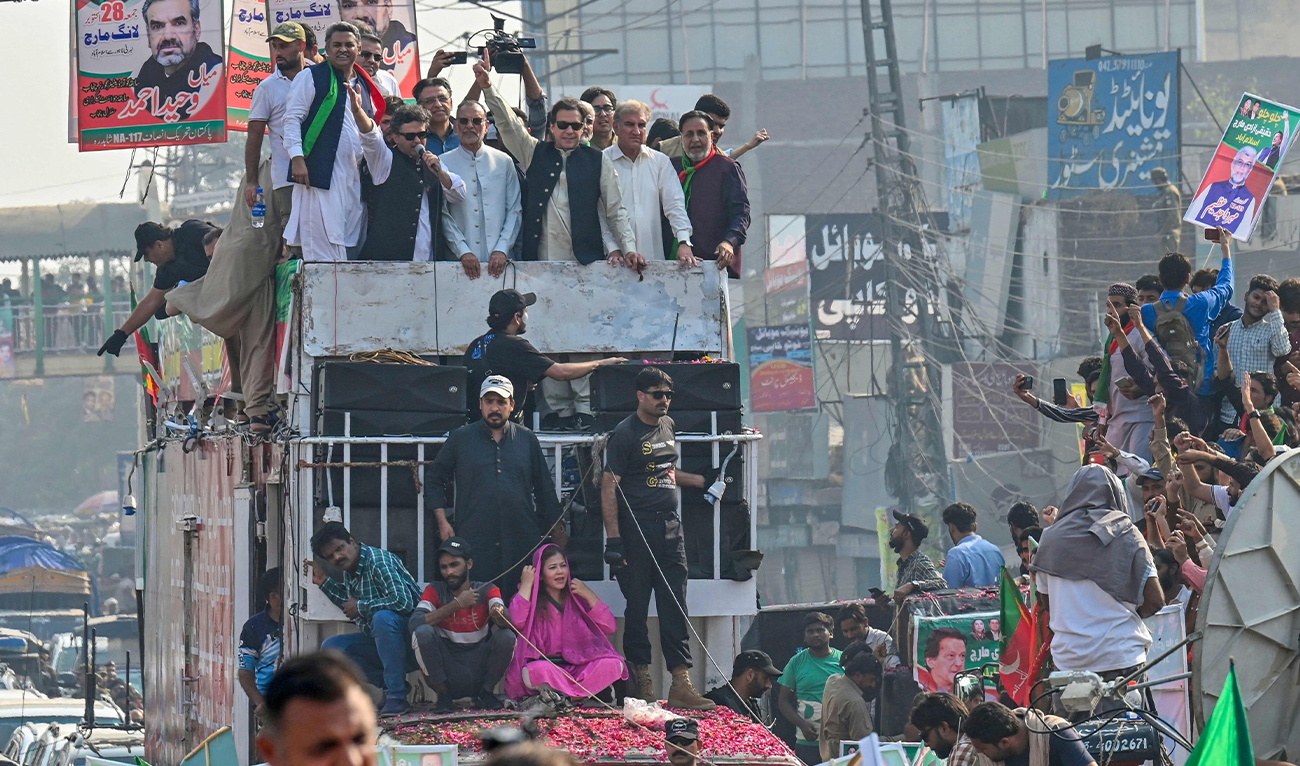
Former Pakistan prime minister Imran Khan (C) addresses his supporters during an anti-government long march towards Islamabad to demand early elections, in Lahore on October 29, 2022. (AFP/File)
Khan led another long march to Islamabad from Lahore, on October 28 to force the government to announce early elections.
However, the march came to an abrupt halt after the PTI chairman's convoy was sprayed with bullets in Wazirabad city on November 3. Khan, along with ten other PTI supporters, sustained bullet injuries while one of his supporters was killed on the spot.
Long march resumes a week after gun attack on Khan

Former Pakistan Prime Minister Imran Khan appears on a giant screen as he addresses an anti-government rally in Rawalpindi on November 26, 2022. (AFP/File)
Exactly one week later, Khan's long march resumed while he recuperated at his Lahore residence. Protest caravans from across the country reached Rawalpindi on November 26 where Khan announced to dissolve the Punjab and Khyber Pakhtunkhwa assemblies to opt out of what he said was a "corrupt system."
No-confidence motion against CM Punjab submitted

Punjab Chief Minister Pervaiz Elahi gestures as he speaks during an interview in Lahore, Pakistan, on February 14, 2008. (AFP/File)
The Sharif-led coalition partners once again started their struggle, especially in Punjab, to prevent the dissolution of the assemblies and submitted a no-confidence motion against Elahi on December 19.
On the other hand, the Punjab governor asked Elahi to obtain a vote of confidence as well to prove he still had the majority in the house.
The Punjab Assembly is expected to start the voting process on the no-confidence motion this Friday while both PTI and the opposition claim they have the majority in the house.
As Pakistan's political drama continues, the country's foreign reserves continue to deplete, unemployment remains high throughout the country and double-digit inflation still looks far from dissipating.






